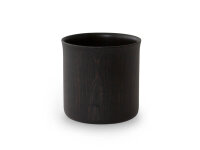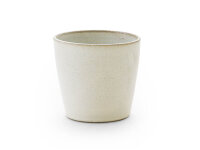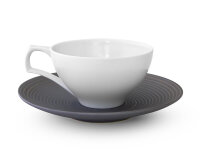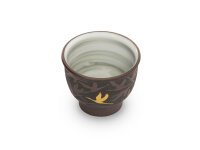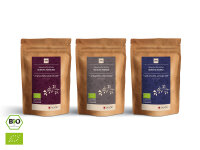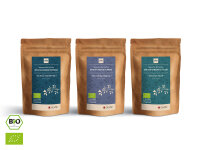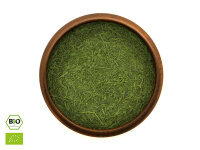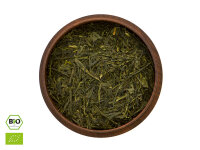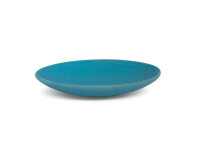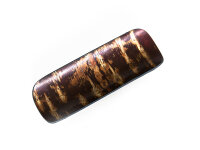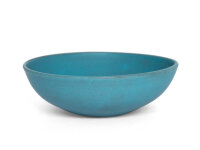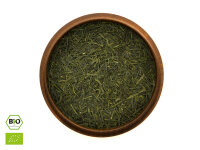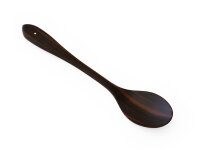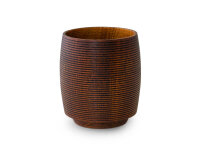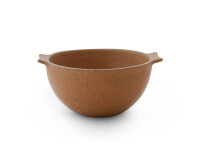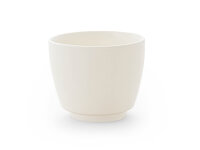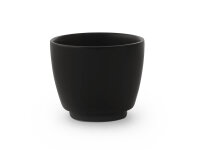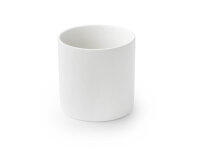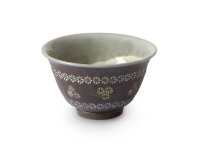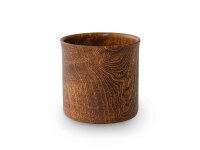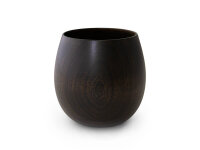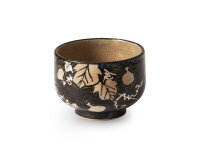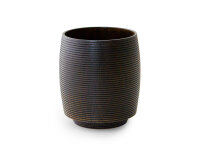"Tea cup, drinking cup Koten usucha"
Keiichi Tanaka achieves his stunning surfaces and colors through a special working method. After molding, he applies a glaze and fires the works at 1200 °C. In a further step, he works with special pigment colors and subjects the works to another firing process, but at a much lower temperature. A desired effect of this working method are the small dots that peek out from under the glaze. Each product is unique and its beauty is emphasized by its individual characteristics. The special aesthetics of the non-perfect has long been held in high esteem in Japan (wabi-sabi).
Ceramic works by Keiichi Tanaka
Keiichi is a ceramic artist through and through. Born in Chiba in 1979, Chiba is located southeast of Tokyo on the island of Honshu. Rice, soy sauce and many types of fruits come from Honshu, where the climate is mild even in winter. Keiichi began his studies - Interior Product Design - at Musashino Art University in 2003. His works can be seen in numerous exhibitions, mainly in Japan, England and France. Keiichi Tanaka has won several national and international design awards.
Keiichi Tanaka on his works
\"In all my works, I am accompanied by the idea that they are used in everyday life. To merge the beauty and charisma of ancient ceramics with a high utility value in the modern world is my drive. In the works I want to realize a collection of time, create a summary of the aesthetics of different ages.
My works with white glaze are inspired by faience, artisan ceramics produced in Europe in the 15th and 16th centuries. The surface is pleasantly smooth and soft.
My blue series combines modern shapes with the color scheme of ancient Egypt, a beautiful blue with a lot of depth, which opens the eye to the mysteries of times long gone.
The material - clay - has a quality that is seductive for me: when clay is fired, it can stop the moment and be a permanent expression of time that has passed and dissolved. The texture of the surfaces is to preserve the softness of the clay and create the emotional connection to past eras with strong feelings.
My dinnerware combines my artistic creation with my hobby, cooking. Its aesthetics become perfect only when it is filled with food, proving its usefulness. My vases are ennobled by the plant for which they are allowed to be hostel. Only together is the work of art complete. Only the use makes the beauty of the works perfect.\"

